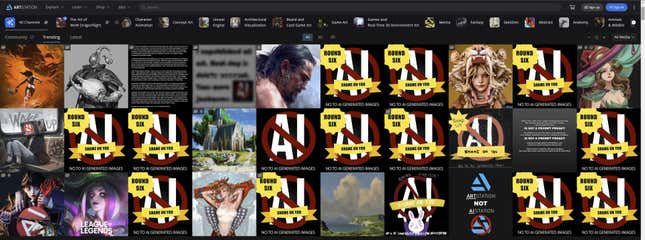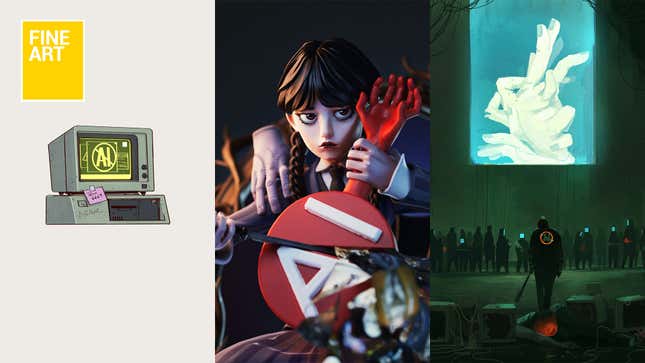
For the past week, ArtStation—the world’s most popular portfolio site for professional (and amateur!) artists working in the entertainment business—has been rocked by protests from its users, after owners Epic Games refused to offer adequate protections against the growing threat of AI-generated imagery.
For the first few days of that protest, most users simply pasted a clean, bold image by Alexander Nanitchkov, using repetition in numbers to have the site’s front page looking like this:

As the days have marched on, though, and ArtStation and Epic refuse to offer more suitable protections for the very artworks their site is designed for, artists have moved on and have decided to come up with pieces that are a bit more elaborate, and personal.
I thought I’d highlight some of my favourites in this post. You’ll find links to their passionate, creative and deeply human portfolios of each artist responsible in the names under each image.
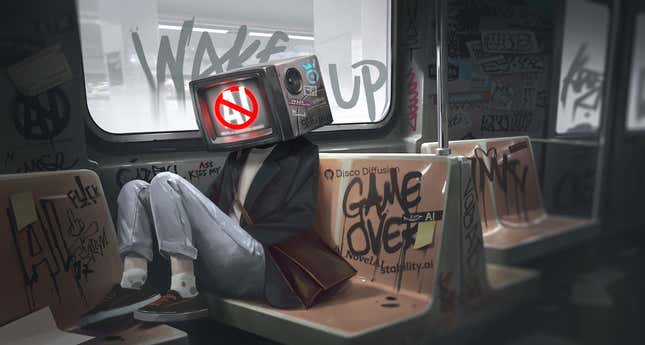
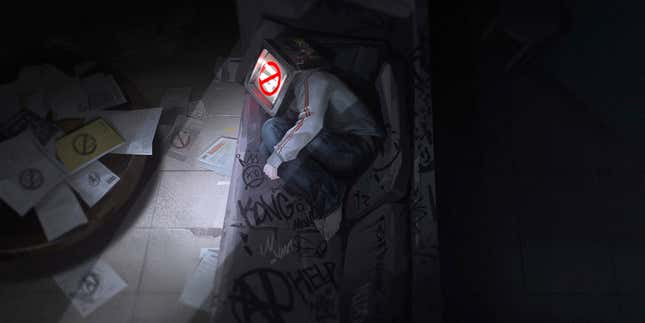
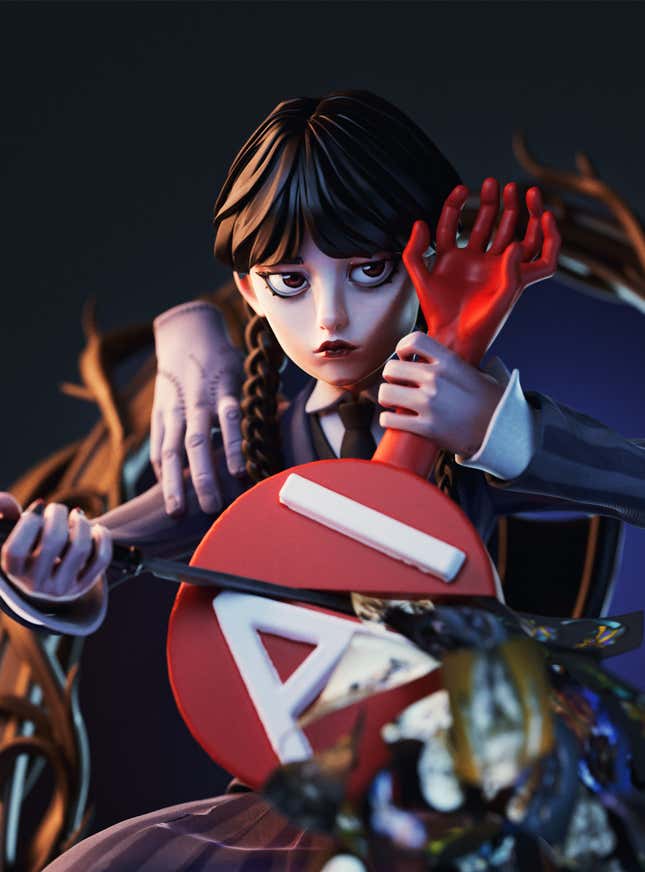
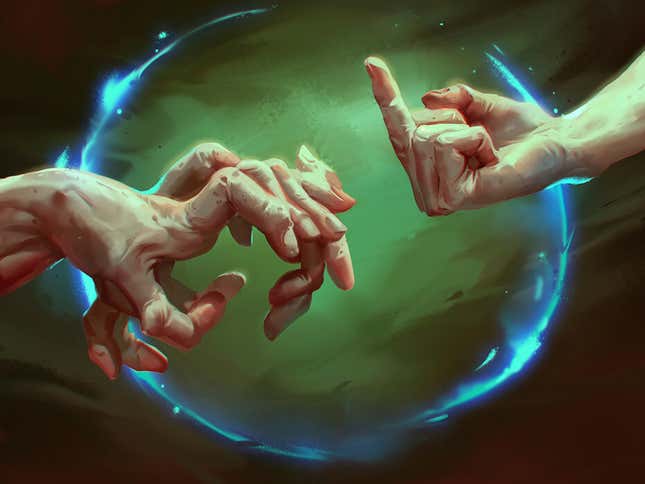
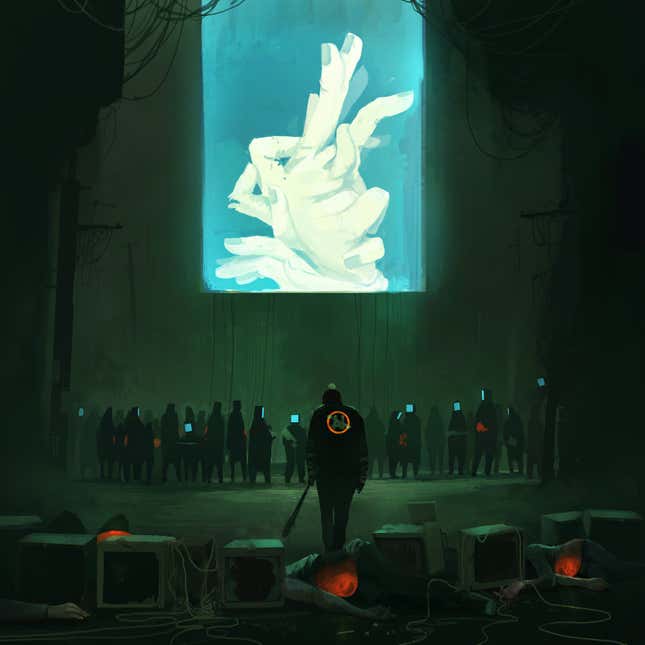
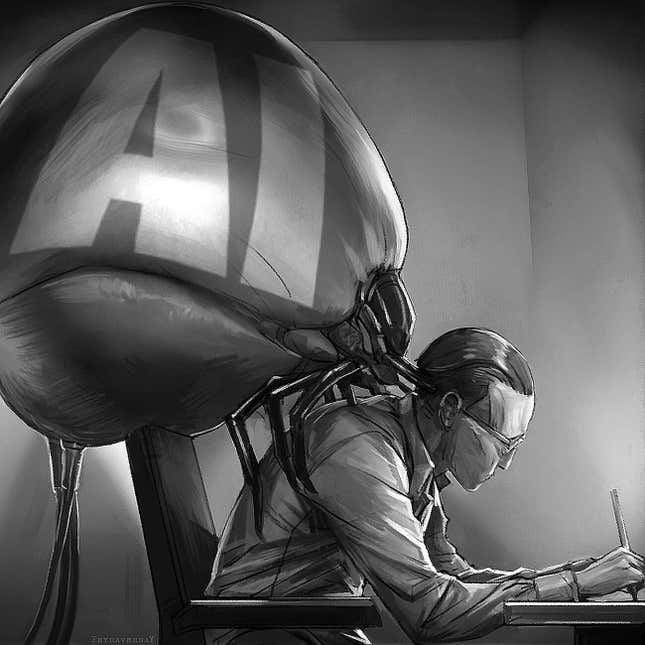
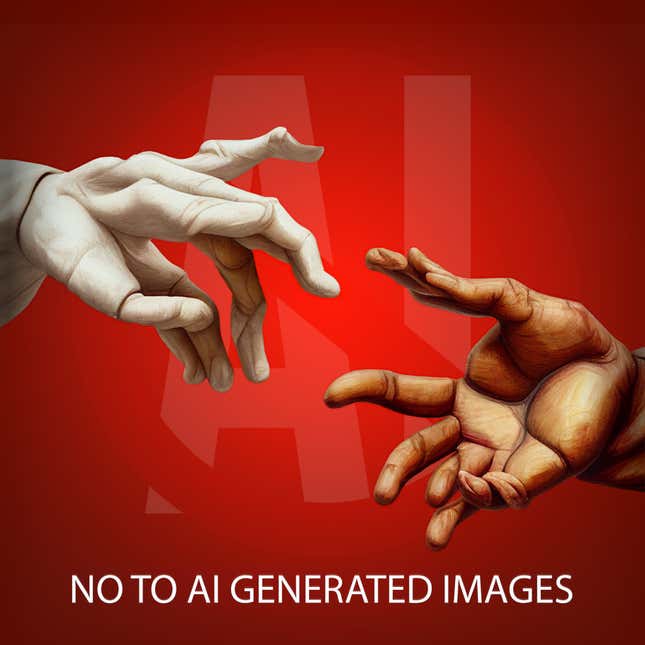
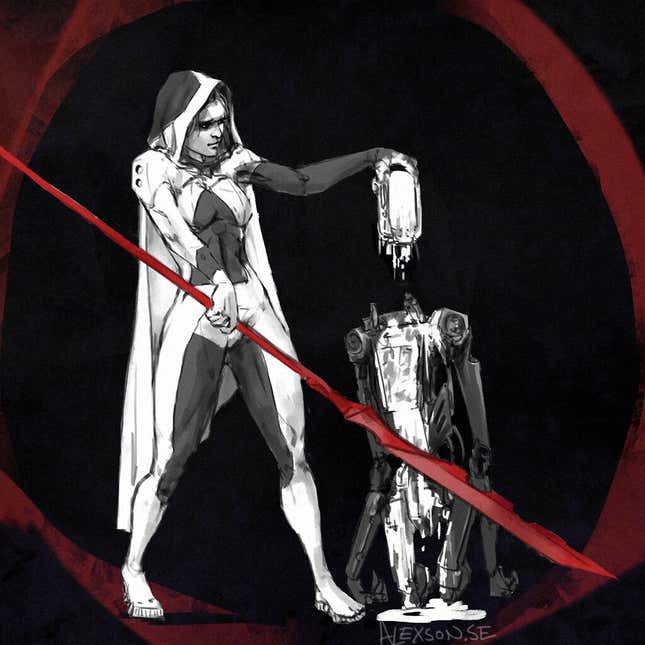
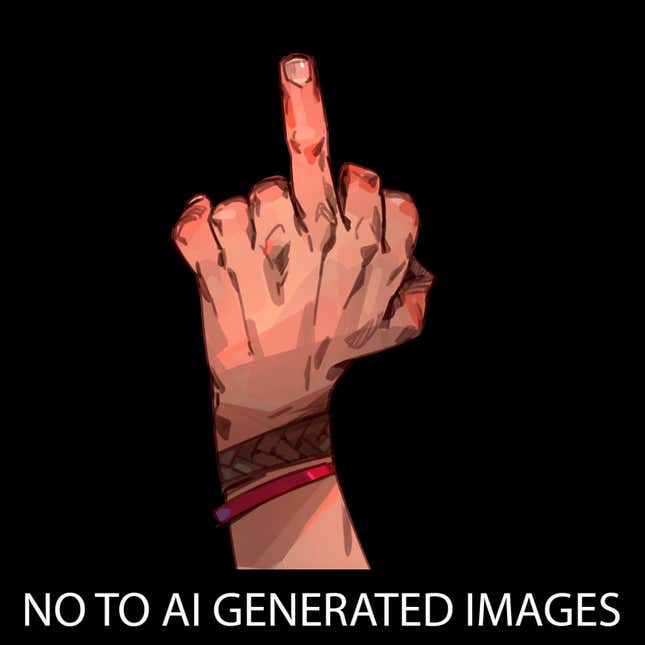
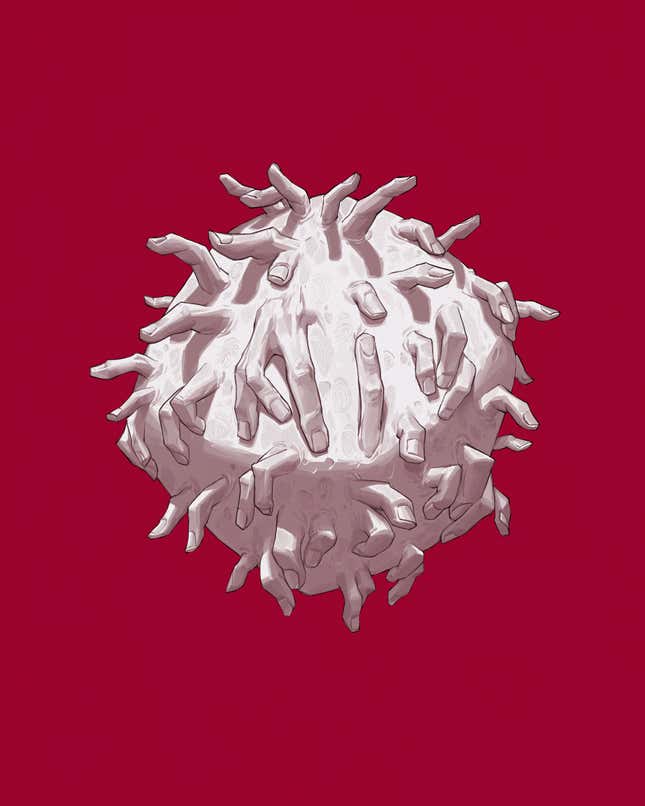
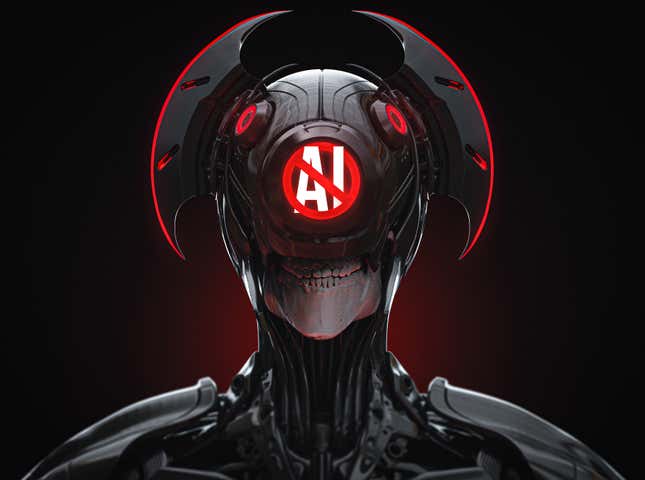
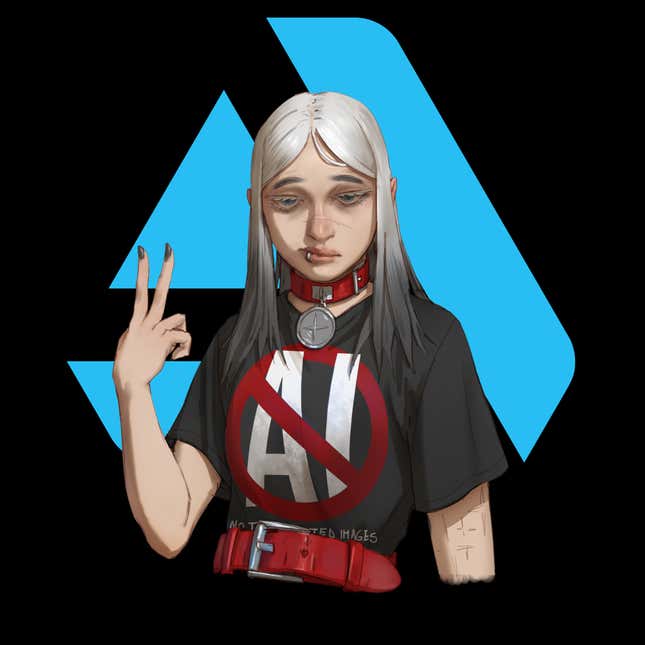

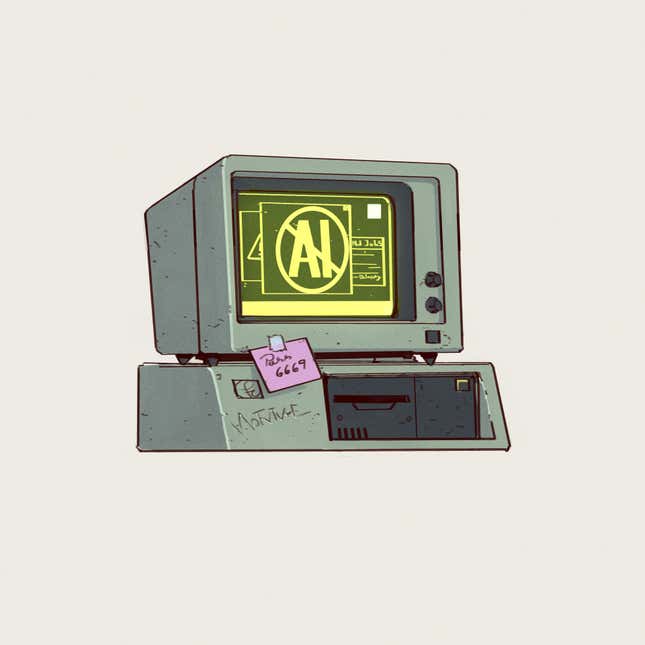
We first wrote about this saga back on December 13, when a growing number of AI-created images appearing on ArtStation’s front page prompted a backlash from artists. In response, ArtStation’s owners Epic Games said:
ArtStation’s content guidelines do not prohibit the use of AI tools in the process of creating artwork that is shared with the community. That said, ArtStation is a portfolio platform designed to elevate and celebrate originality powered by a community of artists. Users’ portfolios should only feature artwork that they create, and we encourage users to be transparent in the process. Our content guidelines are here.
ArtStation then published an FAQ seeking to “clarify” the issue, but instead just made things worse, implementing a policy where users would have to opt out of having AI scrape their artworks (and even then being unable to guarantee AI wouldn’t just scrape it anyway). There have been no updates in the days since, meaning the protests have continued, with today’s front page looking much like last week’s (many of the images not using the standard, pasted response are still anti-AI).
